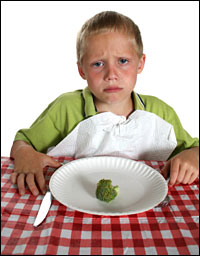
As a practically perpetually pregnant person — I’m a mom of three and have been either pregnant or breastfeeding for 10 years of my adult life — I’ve needed to make my surroundings clean in a nontoxic and green way.
Don’t get me wrong, I’m no snooty domestic diva. I strongly believe cobwebs not only keep mosquitoes at bay, but also lend a bit of atmosphere to a room. However, when you’re expecting, things change.
The most relaxed housekeeper becomes fascinated with the promises of specific mops on the home shopping network. You spend countless minutes perusing the different types of products available to clean your toilet (where you are also, as it happens, spending more time than usual). That strange goop on the stovetop suddenly becomes worth battling, sometimes for an entire Sunday afternoon. Yes, it’s weird — but if you’re expecting, you either know what I’m talking about, or I can pretty much guarantee you will by the time your baby is born.

So here’s the down and dirty on the, well, down and dirty.
What to Ditch
Whatever you have previously associated with a “clean” smell is probably not good for you, and certainly not good for your future baby. If you can smell it, it’s probably entering your bloodstream, and may be able to cross the placenta. If a product says “caution, keep out of reach of children” and you are the child carrier, what does that mean when you uncork it and scrub around the tub with it? A few things to keep in mind:
1. If it has some kind of “Springtime Breeze” scent, it is actually using what’s called a “masking fragrance” made up in the lab. These synthetic fragrances contain phthalates, which have been shown to act as endocrine disruptors. And just what is a masking fragrance masking? It’s only adding to the problem, not cleaning up the original thingy you wanted out of there.
2. Bleach is a case where older, tried-and-true “basics” are definitely not better. Ban the bottle, baby! Bleach is one of the most commonly used cleaners — and one of the most dangerous and corrosive. On its own it’s a lung and eye irritant; add something otherwise friendly and benign like vinegar, and it releases toxic gas.
3. And finally, a big blow to those of us who are germ-phobic: dump that antibacterial right now. Studies show that antibacterials do not clean any better than plain soap and water. And some experts believe we are playing a dangerous game with the delicate balance of “good” and “bad” bugs here — that by using antibacterials in everything from room fresheners to dish soap, we are making an army of resistant super-germs.
Make the Switch
So are we just supposed to go about our business in weird, grungy abodes with stinky, sticky hands? Fear not. Here are some options that are pleasing for an expectant mom’s delicate nose, proven safe — and some will even make cents!
1. These are my recommendations for the best clean, green hand cleaners: Dr. Bronner’s, Vermont Soap, Sappo Hill.
2. Here are some clean and green household cleaners: Whole Foods 365, Seventh Generation, Ecover, Deirdre Imus’ Greening the Cleaning, Begley’s Best, Babyganics. (Watch out for pretenders, too — just like cosmetics, there is tremendous leniency on what manufacturers can claim as “safe” and “natural.”)
3. If you are looking to save some green, make your own — some of the most effective ingredients are probably already in your kitchen: You probably already know baking soda is a nontoxic tooth whitener — put a little in your hand, dip your moistened toothbrush in to make a paste, and brush. (The taste takes a bit of getting used to.) Baking soda also makes the best carpet deodorizer — sprinkle on carpet, leave on a couple of hours, vacuum. You can sprinkle it in garbage pails to absorb odor. It makes a terrific bathtub scrub that won’t scratch: sprinkle in the tub, scrub a little with a paper towel or rag, turn on the shower, and wash away. No toxic smell and environmentally super-friendly, so no guilt from the frogs and fishies! Finally, use it for a very, very soothing bath — about 1/4 to 1/2 cup for a tired mom — and it’s safe for baby, too (you’ll use much less, of course, since baby’s bath is so much smaller).
Vinegar is the ultimate all-purpose cleaner; it’s incredibly green and super inexpensive. You’ll want to dilute it with water, or you can cause weird streaks or staining (and be sure not to use it on marble). Four parts water to one part vinegar is good for most uses. Put in a spray bottle if you have one (or get a plant mister from a florist store) and spritz and wipe as you would a conventional cleaner. It’s the best glass cleaner in the world! Also works to wipe through stovetop grease, appliances, and non-marble countertops. OK, lemons may be a little pricey, but they smell great. A half cup of olive oil and a quarter cup of lemon juice make a fabulous polish for wood furniture. Some lemon peel ground into the garbage disposal takes away even the nastiest odors. And a bleach alternative in a load of white laundry (and only whites): a half cup lemon juice with the same amount of baking soda.
My last tip for safe cleaning: convince someone else in your house to do it!


